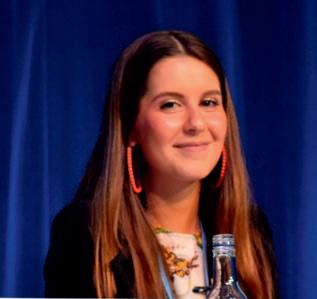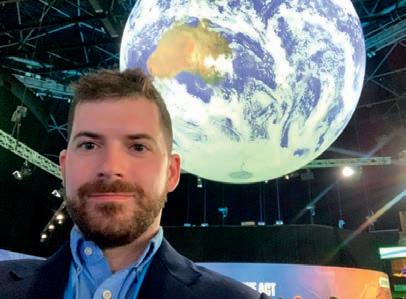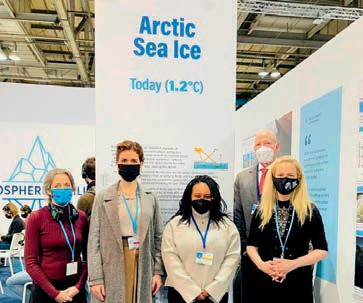
1 minute read
Arctic Initiative Contributes to COP26
The United Nations Climate Change Conference negotiations have critical significance for the Arctic—and vice versa. The Arctic is warming about four times the global average, with both regional and global consequences, and addressing these impacts guides the Arctic Initiative’s research and policy work. The Initiative was well-represented at the COP26 in Glasgow, Scotland, where our team and our collaborators participated in a variety of events and capacities.
◀ On November 2, during the first week of COP26, the Government of Greenland declared its intention to rejoin the Paris Agreement. Arctic Initiative Co-Founder and Associate Halla Hrund Logadóttir met with Greenland’s Prime Minister Múte B. Egede, who made Greenland’s announcement alongside Danish Prime Minister Mette Frederiksen.

▲ On November 8, Fran Ulmer participated in “Sustainable Development in the Arctic,” a panel hosted by Edinburgh University. Viacheslav Fetisov, UN Goodwill Ambassador, served as the moderator of the event, which focused on the challenges facing the Arctic due to rapid climate change.


On November 5, the Woodwell Climate Research Center, the Initiative’s close collaborator on ▶ permafrost thaw research and policy, and Woods Hole Oceanographic Institution hosted “Refreeze the Arctic,” a side event exploring appropriate climate ambition to keep the Arctic biophysical systems intact amid severe degradation. Logadóttir (right) is pictured with David McGlinchey (Woodwell), Natalie Baillargeon (Woodwell), Þórdís Kolbrún R. Gylfadóttir (Icelandic Minister of Tourism, Industry, and Innovation), and Sue Natali (Woodwell). ◀ Several Harvard Kennedy School students also attended COP26, including Samuel Gant, a 2021 Arctic Innovator and Master in Public
Administration candidate, and Renata Koch
Alvarenga, an Initiative Research Assistant and Master in Public Policy candidate.











